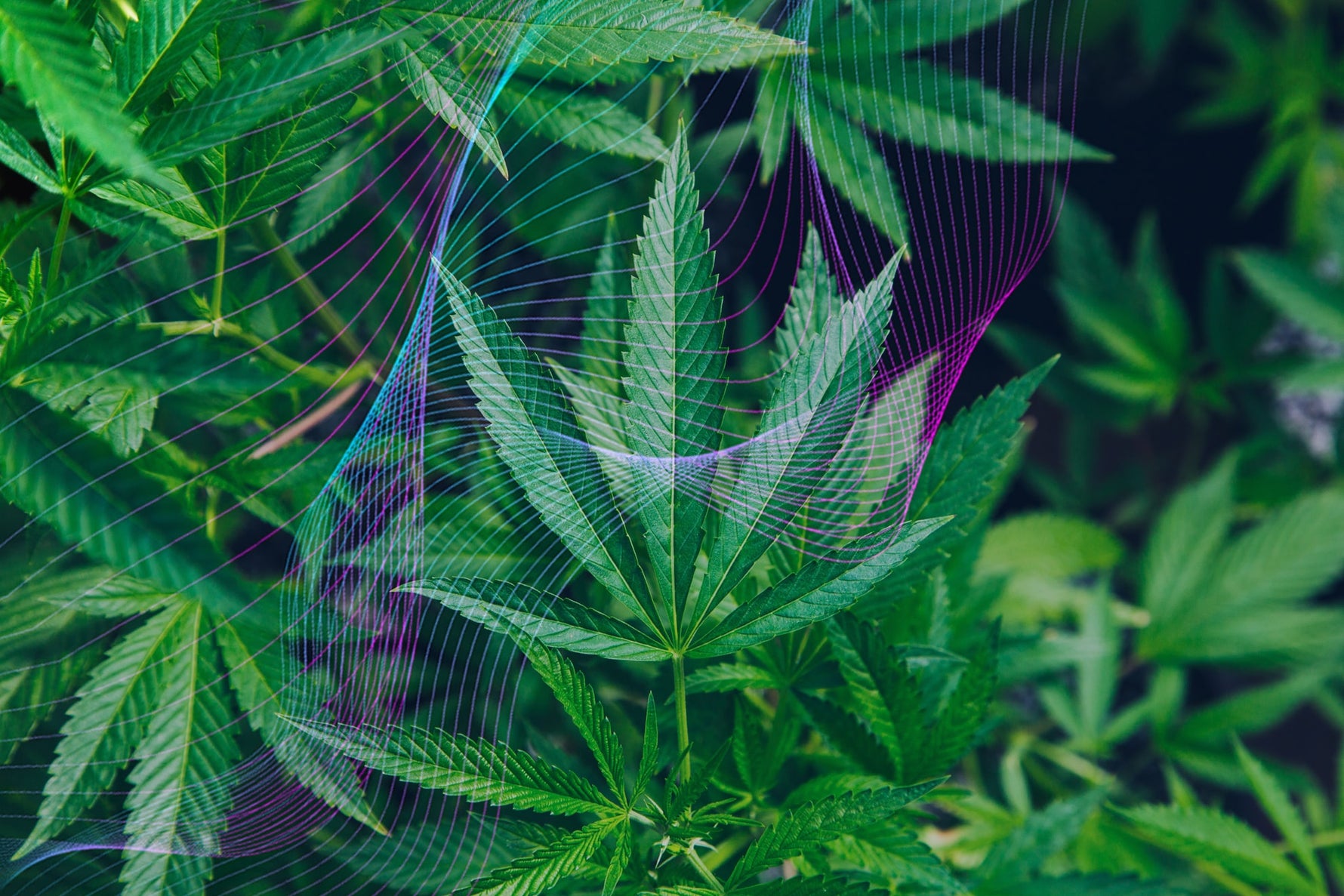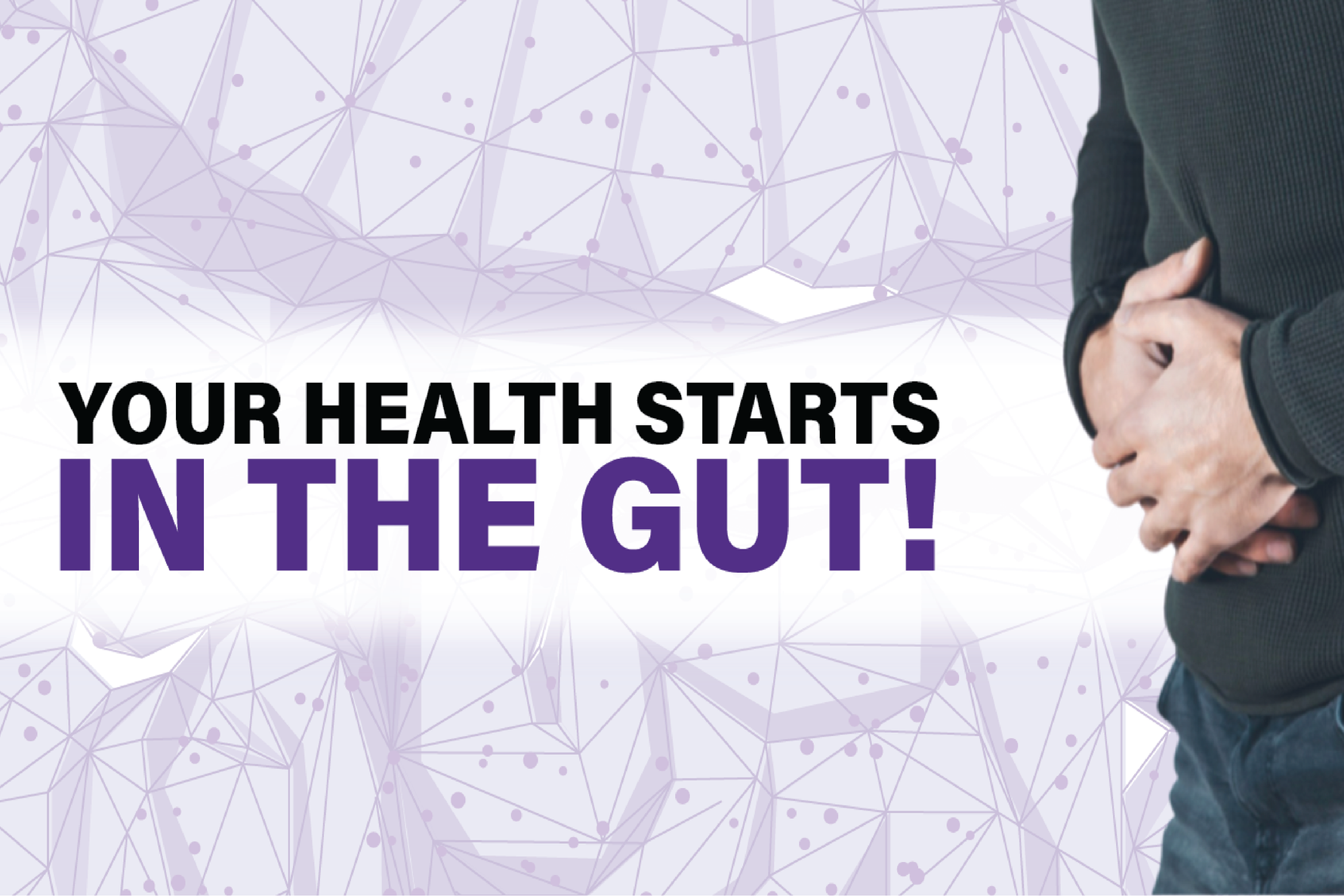Knowledge

Knowledge
by Thea Hiemstra on Jun 09 2021
Ah, CHOLESTEROL. That ugly word that gets blamed for so many things. It’s one of those topics in the health world where overwhelming evidence shows that we may have gotten it wrong in the 1950’s, but public perception and the modern standard of care for the problem seems slow to catch up.
Cholesterol has over the years been blamed for cardiovascular disease, heart damage and plaque build-up in arteries (atherosclerosis). Truth be told, there’s very little evidence that cholesterol, in and of itself, is something that would increase these risk factors. Yes, you may say, but then how did we get it so wrong, the scientists have studies and why are we still being told to avoid “cholesterol-causing foods”?
Well, to put it simply: Cholesterol was the last at the scene of the crime, and it got blamed for what Inflammation did. Believe it or not, cholesterol is actually a protective mechanism. Without cholesterol, we couldn’t live. The list of reasons why cholesterol is important is long, but try think about how critical each of these are to the proper functioning of our bodies:
Critical structural element in brain and nervous system tissues (it transports nutrients into cells and is an essential part of membranes).
Allows for synthesis of many hormones, like progesterone, oestrogen, testosterone, cortisol and Vitamin D (which is actually a hormone).
Insulates neurons.
Participates in the immune response.
Metabolises fat-soluble vitamins.
Produces bile.
LDL, the so-called bad guy, is crucial for its benefits to cognition, longevity and hormones.
How Did Cholesterol Get such a Bad Rap?
When heart disease became more prominent in the early 1900’s, research into the root cause took off and continued for decades. Following a number of rabbit studies where rabbits received cholesterol through diet, their blood cholesterol levels increased, leading to atherosclerosis. Human tests in the 1950’s then showed a relationship between “early death” by heart disease and fat deposits plus lesions being found along artery walls. Boom. Problem solved. In addition, previous research had tied hereditary high blood cholesterol (familial hypercholesterolemia) to heart disease, so it was a very neat solution to name cholesterol as the dastardly culprit.
Here is what we know now: Consuming processed foods, vegetable oils (including those Heart Foundation approved margarines), sugar and overconsuming carbohydrates leads to inflammation. All of these foods cause your blood sugar to spike, and these constant spikes directly result in inflammation. Over time, inflammation weakens the walls of our arteries (that shuttle blood and other nutrients to where they are needed).
In an effort to “patch” the weakened arteries and prevent lesions in the artery walls, which would obviously be disastrous, our clever bodies send cholesterol as a sort of filler or band-aid to try to strengthen the arteries. However, as this process continues over time, the build-up becomes too much, arteries become blocked and NOW you have heart disease. Cholesterol was being blamed for the damage caused by inflammation, when in reality it was trying its best to bandage the damage done by other factors. But when someone succumbed to heart disease, all we saw was the cholesterol.
Finally, I think it’s important to remember that there is a difference between dietary cholesterol (which the rabbits were being fed) and blood cholesterol and that they’re not directly related. Given how important cholesterol is, our bodies (via the liver) carefully regulates the cholesterol in our bodies, and, on its own, produces 1,000-1,400mg daily (i.e. not derived from food). Cholesterol from food is only a small portion of the cholesterol in our bodies so a statement like eggs and butter will cause heart disease is truly inaccurate. The liver has a clever feedback system which monitors how much cholesterol to make relative to how much it has received from your diet. The more cholesterol-rich foods you eat, the less your liver produces. If you cut out these foods, your liver is just going to make it anyway.
So What Exactly is Cholesterol?
As with the miracle that is our bodies, it’s always a bit more complex than that. I bet that in the context of cholesterol you’ve heard of Low-Density Lipoproteins (LDL), High-Density Lipoproteins (HDL) and Triglycerides. LDL is bad and HDL is good. We have to stop calling LDL bad and wanting our HDL to be as high as possible!
Very simplistically, LDL and HDL aren’t technically speaking cholesterol. Because cholesterol is not water soluble, it can’t move through the body in the bloodstream (fatty acids and blood are like oil and water). The body therefore cleverly packages three fatty acids (cholesterol) together in a combo pack called a triglyceride. These triglycerides have to be carried around by lipoproteins (think of these as little cholesterol taxis), and this “taxi” is then what is called LDL and HDL.
LDL’s function is to transport cholesterol from the liver to the tissues (where it can build up if there is inflammation AND the LDL particle size is small (more on this in a minute). This is why it got the rep as the “bad kid” on the block. HDL got known as the “good kid” because its function is to collect the “bad” cholesterol that wasn’t used after it deposited fatty acids and antioxidants back to the liver for disposal (and therefore seen as protective).
So is LDL completely innocent? Well, no. There is a further nuance. What is important with LDL is in fact the particle size. Based on your diet, your LDL particles can be big and fluffy like tennis balls (carrying more fat-soluble nutrients), or small and hard like golf balls. If you picture your arterial walls as a tennis net, the fluffy tennis balls can’t get through – it does what it needs to do (is highly cardio-protective) and is shuttled away. The small, hard golf balls sail through the tennis net and start plaque build-up in your arterial walls (and are prone to oxidation), which leads to heart disease. So while LDL may not be the direct cause of cardiovascular disease, it is still a necessary ingredient.
Paradigm shift
It's therefore important to understand that we need to look at cholesterol and its role in contributing to heart disease in a different way: It is the particle size that’s more important than the mere presence of LDL in your bloodstream.
Here is what I believe what we should be focusing on:
LDL particle size (there are tests for this, like the LipidPro test)
Triglyceride to HDL ratio (the atherogenic index): this is an enormously valuable indicator of potential heart disease which is often ignored and so simple to calculate! You might hear that a ratio of up to 4 is acceptable, but really you want your Triglyceride to HDL ratio to be less than 1
hs-CRP (tests for inflammation): given what we’ve come to understand about inflammation, this is a wildly important blood test to get to ensure that your inflammation is under control (along with blood glucose and insulin testing)
HDL that is too high could be an indication of chronic inflammation (HDL is anti-inflammatory), so don’t look at your HDL number in isolation
What Role Does Genetics Play?
One of the main criticisms against a keto diet is that it raises cholesterol. And this is true. But guess what: saturated fat (butter, animal fat) intake has been shown to increase the big fluffy LDL particles and decrease the small, hard LDL particles. In addition, research has shown that certain types of saturated fats can increase HDL (which improves the Triglyceride to HDL ratio).
Important caveat: There are a number of people who will not do well on a ketogenic diet or on large amounts of saturated fat. If you have certain APOE genes, your body would do better with monounsaturated fats like olive oil and avocado oil. If it’s at all possible, it’s such a wonderful intervention to get genetic testing done. But in the absence of this, always be cautious to overdo the saturated fats and structure your diet around Mediterranean-type fats like olive oil.
Certain other genetic factors also play a role in how cholesterol is shuttled through your body and how long it stays there, so it’s always good to be aware that we are all unique and a one-size-fits-all diet approach is not appropriate.
Statins: Friend or Foe?
I was recently chatting to a mate of mine. He is fit, healthy, cycles regularly but not too much, lifts weights and eats a diet with moderate carbohydrate restriction. At his annual check-up, his doctor looked at his total cholesterol (TC) and LDL scores and said that they are “mildly elevated”. This caused my buddy some distress as he wants his health to be perfect. He asked the doc what could be done, and the doctor prescribed the current standard of care: statins. For a healthy guy in his 20’s.
Statins are actually a heart medication that have lowering of LDL as a side effect. This means that statins address the symptoms, but not the problem. They work. They lower cholesterol. But there is some serious collateral damage, including muscle problems, cognitive issues, pain, numbness in extremities and elevations in blood glucose, which in turn drive inflammation. Yup.
However, it appears that at the heart of the problematic side-effects of statins is their impact on your mitochondria (the power houses of your cells). You may have heard of Coenzyme Q10 (CoQ10), which allows your mitochondria to produce energy and fight free radicals (which basically causes ageing). CoQ10 travels along the same pathways as cholesterol, so when statins stop cholesterol, they stop CoQ10 from getting to your mitochondria and you are left defenceless against free radicals, which in turn causes more inflammation, which is at the heart of heart disease. The very problem it’s meant to solve, is actually exacerbated (not caused) by statins.
Shop Here: NeuroActive Coenzyme Q10
The medical community who are aware of these problems are increasingly concerned with studies coming out funded by the creators of statins advocating for statin usage, even when cholesterol levels are considered normal. As my functional medicine doctor recently told me, it takes the accepted standard of care around 20 years to catch up to new information. I’m certainly not advocating that you stop taking statins cold turkey if you’re already on them, but perhaps you should work with a doctor to decide if CoQ10 supplementation could be suitable for you.
What I am, however, advocating for is that we ask ourselves why we would blindly take potentially dangerous, expensive statins when this could possibly be addressed far more effectively through lowering inflammation by cutting out these highly-inflammatory foods, taking Omega-3 rich oils and implementing some dietary adjustments that could leave your cholesterol taxis swimming around happily where they would not need to be the last culprit spotted at the scene of the crime?
The Wellness Stack
The Wellness Stack has combined best-selling products to support optimal well-being for a healthy and balanced state.You can now help your body fight inflammation naturally - SHOP HERE TODAY.
Organic Super Greens - Combines 14 Superfoods, veggies and adaptogens to help your body naturally fight inflammation.
Bioshield - with Chaga Mushroom is an advanced Immune Support & Vitality formulation designed to support optimal and healthy immune function, support wellness and detoxify the body.
Gut Complex - the next-generation Probiotic, Gut Health & Digestive support product with a synergistic combination of advanced & patented ingredients in order to promote and support optimal gut health.
Closing thoughts
A study that has been running since 1948 (Framingham Heart Study) showed that over 40% (and even up to 75%) of heart attacks occur in people with “normal” cholesterol levels, and some people who did have “high” cholesterol never suffered heart disease. It also showed that having cholesterol that is too low (<180) can triple your chances of having a stroke and is highly correlated to poor cognitive function in old age. A host of studies show that cholesterol can have a highly cardioprotective effect, increase intelligence and increase your endocrine function.
The moral of the story: looking at your total cholesterol is simply just not a good indication of heart health. Don’t worry too much about LDL but take into account particle size and genetic differences. Humans are complete organisms and your health will depend on a host of inter-related factors, like sleep, diet, exercise, smoking, being overweight etc. All of these factor into a healthy, happy heart and this is what we should be concentrating on.
Trust your gut, eat what your body tells you feels good and question the health choices that you make. Your heart and health will thank you for it!
Looking for inflammation support supplements? Shop our range of premium products on OPTMZ below:
PRIMESELF 4-in-1 Shroom Elixir Powder
VitaActive C60 MCT Oil
NeuroActive Green Tea Extract
NeuroActive Curcumin+
NeuroActive Chaga Mushroom
Disclaimer
Please note that this is not medical advice and you should always consult a doctor when making a decision on changing, starting or ceasing any medication. This article is intended for information purposes only and should not be construed as medical advice.
About
Social Media
Thea is the founder of Neolaia – Biohacking SA and passionate about all things biohacking, functional medicine, holistic and ancestral wellness. She enjoys the occasional triathlon, is fanatic about yoga and the gym and loves n=1 biohacking experiments more than anything else! Learning about the latest in scientific research for health and wellness and applying this knowledge is what makes her happiest!
Instagram: biohack_sa

Knowledge
CBD Oil's Benefit For Both Body and Mind
by OPTMZ Official on Sep 26 2019
With many countries beginning to legalize hemp and marijuana (both hemp and marijuana are different varieties of the cannabis plant), we can find much research on CBD (Cannabidiol) across the globe for its contribution in treating various ailments and boosting the overall health in humans.
Before we delve deeper into CBD and its derivative CBD oil, it is essential to know about the differences between CBD and its equally popular cousin, THC, as well as the legal status of CBD!
How Does CBD Differ From THC?
CBD, also called cannabidiol, is a non-intoxicating compound extracted from either the hemp or the marijuana strains of Cannabis sativa, the main plant. While both contain CBD, it is found in abundance in hemp, which also has low levels of THC.
THC (Tetrahydrocannabinol) is also derived from marijuana and hemp, but it is a more potent and psychoactive agent that produces euphoric effects commonly signified as being “high.” While hemp can contain a maximum of 0.3% THC (calculated via dry weight), marijuana comprises up to 30% THC. [1]
Unlike THC, CBD does not possess intoxicating properties.
How Does CBD Affect The Body?
CBD has positive effects on most of our body receptors such as:
Glycine receptors – That control happiness, mood, anxiety, etc. related to the happy hormone serotonin.
Opioid and Vanilloid receptors – That regulate the pain factor.
Adenosine receptors – That control the quality of our sleep.
CBD, through regulating the above and many more receptors, helps to treat many ailments from simple acne to significant illnesses like Parkinson’s.
What is CBD Oil?
CBD oil is a mixture of CBD (cannabidiol – a compound derived from the cannabis plant) and a carrier oil like hemp seed oil or coconut oil.
CBD oil is legal in many states in the US, and many countries across the globe are also legalizing CBD oil (as long as they are obtained from hemp, and not marijuana). This is because the CBD oil derived from hemp either has no THC or a minimal amount of THC (<0.3% which is acceptable).
While the research around the CBD compound is throwing up positive results in therapeutic uses, subjective reports from individuals across the globe prove that CBD oil does have some special powers indeed!
Nora Volkow, Director National Institute of Drug Abuse, says that preclinical research has shown CBD oil to have various therapeutic uses in cases like anti-seizure, anti-inflammatory, anti-tumour, anti-anxiety, antipsychotic and more.[2]
Benefits of CBD Oil For The Mind And Body
Here’s how CBD oil can aid people in treating different ailments, and also building a healthy lifestyle.
1. A Happy Heart
CBD oil can reduce hypertension and thereby minimize the risk of heart disease. Studies on nine healthy individuals who were administered with 600 mg of CBD were found to have low blood pressure prior and post-exposure to demanding situations like heavy exercise and extreme cold weathers.
Furthermore, the stroke volume was seen to be significantly reduced, meaning the heart was functioning efficiently. [3]
These findings enhance the possibilities that CBD oil may be an efficient complementary therapy for individuals whose hypertension is augmented by anxiety and stress. However, there has been no evidence that CBD oil on its own can reduce hypertension.
2. A Positive Mindset
One of the prominent effects reported by many people taking CBD oil is a better mindset through enhancement of a blissful and calm mood.[4] The shaping up of a positive mindset can be attributed to the CBD’s effects on the 5-HT1A receptors that regulate the release of vital neurotransmitters that control the anxiety and mood levels, particularly serotonin.[5]
CBD oil has helped to enhance one’s lifestyle in the same way, as through meditation and self-realization. Many people, after consumption of quality CBD oil, have found themselves feeling a lot more relaxed, with a sense of calmness. They also experienced a shift in mindset that helps them see the world from a different perspective. CBD oils are popular among meditators as a means of gaining more profound knowledge and enhancing their awareness. [6]
3. Relief From Pain
One of the crucial components of the human body is the endocannabinoid system (ECS) that regulates various functions like appetite, sleep, pain and various other immune response systems. [7]
Studies have shown that CBD, through its analgesic effects, can help to minimize chronic pain by impacting the endocannabinoid receptors and reducing the inflammation and its associated pain. [8] Certain animal studies have shown that CBD injections have helped to reduce the surgical incision pain response system, while yet another animal study showed that oral treatment with CBD reduced the sciatic nerve-related pain and helped to minimize inflammation.
4. Helps Deal With Depression and Post Traumatic Stress Disorder [9]
CBD oil is known to be safe and effective in treating anxiety and insomnia in children suffering from post-traumatic stress disorders. Several animal studies have also shown its anti-depressant properties as well. [10], [11]
According to the 2017 World Health Organization report, depression has been the sole significant contributor leading to disability across the globe, while anxiety-related disorders were ranked sixth. [12]
Thus, consuming CBD oil on a regular basis may help people suffering from anxiety and depression without the side effects associated with many anti-depressant medications.
5. Reduces Seizures
Certain studies have found CBD to be a promising treatment for seizures. According to a study, when people with severe forms of epilepsy were administered CBD oil of 0.9 to 2.3 grams per pound of body weight, there was a significant reduction in their seizures of a median of 36.5%. [13]
CBD oil has also shown to reduce seizures amongst children suffering from a complex epilepsy childhood disorder called Dravet Syndrome. [14]
6. Reduces Inflammation
CBD oil that contains CBD extracts from the cannabis plant can be an effective form of treatment for chronic inflammation and related pain in arthritis. [15], [16] Various animal studies have also proven the same. [17] Studies have also shown CBD oil’s efficacy in treating pain related to fibromyalgia. [18]
Hence, the application of CBD oil can help alleviate symptoms of pain and inflammation in arthritis patients, as well as easing the pain factors in other medical cases.
7. Makes Skin Soft and Supple
When applied topically, the antioxidants in CBD oil helps to protect the skin from damage caused by free radicals like UV rays and other pollutants.
Various topical cannabis-based products are being developed that help to treat skin issues from acne to psoriasis and also foster a quick restoration of damaged skin.
8. Increases Bone Strength
CBD helps augment the process of formation of new bone cells and thereby promote faster healing of broken bones. Bones treated with CBD oil in subjects have shown to be 35% to 50% stronger than those that are not treated. [19]
CBD oil has been researched for its prospective role in treating common health issues, including but not limited to depression, anxiety, cardiovascular health, acne, inflammation and so on. With continuous ongoing research on the potential benefits of CBD oil, many new remedies using this miracle oil are sure to be revealed.
Article Courtesy - PRIMESELF

Knowledge
A Lack Of Sleep Kills Productivity!
by OPTMZ Official on Sep 10 2019
‘Get a good night’s sleep!’ You hear this line before a big corporate meeting, an important test, and even a marathon. Why? Because it is an established fact that sleep can affect our performance.


